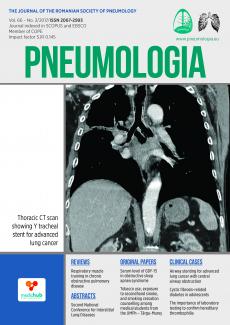Considerations about prolonged fever syndrome
Abstract
Alexandru Crisan, Emilia Nicoara, Ruxandra Laza
Clinica II Boli Infectioase - Universitatea de Medicina si Farmacie Dr.V. Babes Timisoara, Romania
Contact: Alexandru Crisan, alexandrucrisan@msn.com
str. Simion Barnutiu 73, Ap.9, Timisoara 300304
ABSTRACT
Since the earliest days of sistematic thermometry prolonged fever illness has fascinated and generated many frustations to clinicians and laboratory physicians.
The authors present peculiarities of 57 patients with prolonged fever illness that were admitted to 2nd Clinic of Infectious Diseases from "Dr.V.Babes" Clinical Hospital of Infectious Diseases and Pneumophtisiology Timisoara between June 2006 and June 2008.
We submit data about signs and symptoms associated with fever of unknown origin, dynamics of fever, different etiologies of prolonged fevers, underlying favourable host-associated conditions (immune deficiencies, comorbidities), importance of laboratory investigations and imaging studies in establishing etiologic diagnosis, duration of hospitalization, management of patients. 5% of cases of prolonged fever remained without etiologic diagnosis.
Prolonged fever by its frequency, potential severity, multitude of etiologies that are involved, remains a diagnostic challange and many times it imposes collaboration between different specialists. In our study percentage of infectious cause (73%) is much higher than in developed countries where prolonged fever of infectious origin represents only 27-33% of all cases, just a little above neoplasms. Today the percentage of cases without etiology is smaller because we have better access to more sophisticated diagnostic tools.
Key words: prolonged fever illness, etiologic spectrum, diagnosis.




 Considerations regarding the prolonged febrile syndrome
Considerations regarding the prolonged febrile syndrome